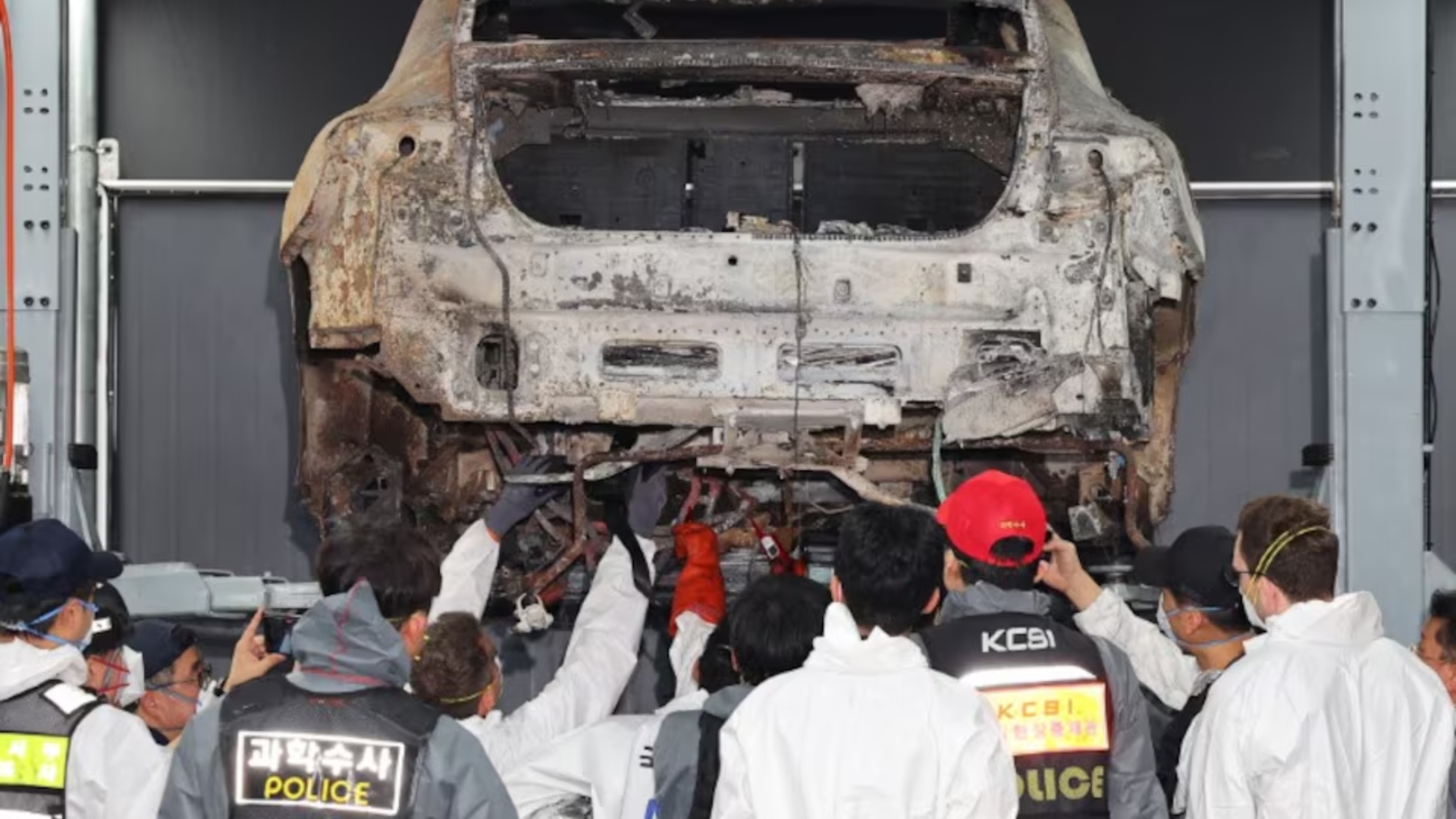SEOUL, (Reuters) – South Korean officials met on Monday to discuss electric vehicle safety and whether to require car firms to disclose battery brands amid growing consumer concern after an EV blaze in an underground garage extensively damaged an apartment block.
The fire on Aug. 1, which appeared to start spontaneously in a Mercedes-Benz EV parked below a residential building, took eight hours to put out, destroying or damaging about 140 cars and forcing some residents to move to shelters.
The country’s vice environment minister is leading the meeting, which is also being attended by the transport and industry ministries and the national fire agency, an official said, with the government due to announce new rules soon.
On Tuesday, transport ministry officials will hold talks with automakers, including Hyundai Motor Group, Mercedes-Benz Korea and Volkswagen Group Korea, to discuss the proposal to disclose battery brands used in EVs, media reports said.
The ministry did not immediately provide a comment on the reports. Hyundai Motor Group, Mercedes-Benz Korea and Volkswagen Group Korea did not immediately respond to a request for comment.
Images published in media of dozens of charred cars with only their metal frames remaining in the parking lot fire have fuelled consumer fears about EVs, likely exacerbated because so many people in South Korea live in apartments, often with parking lots below.
Early this month, Kia Corp’s electric crossover EV6 with South Korean battery maker SK On’s batteries also caught fire in a parking lot, fire authorities said.
Car experts say that EVs burn differently to cars with internal combustion engines, with fires often lasting longer and harder to extinguish as they have a tendency to reignite.
The Seoul Metropolitan Fire & Disaster Headquarters in a report published in February said 1,399 fires occurred in underground parking lots in South Korea between 2013 and 2022, with 43.7% attributed to vehicles. It said electrical sources accounted for 53% of car fires in underground garages.
The Chosun Ilbo newspaper reported last week that South Korea planned to require EV makers to disclose the brand of batteries in cars.
Automakers currently need to provide certain information about vehicles, such as fuel efficiency, but only limited details on batteries and do not have to name the manufacturers, the newspaper said.
On Saturday, Hyundai Motor Co identified manufacturers of batteries used in their 13 EV models, including three models from its Genesis brand on its website, after receiving many enquiries about EV battery makers.
Hyundai and Genesis EVs use batteries from companies including South Korea’s LG Energy Solution (LGES) and SK On, as well as China’s CATL, the website showed.
Moon Hak-hoon, professor of automotive engineering at Osan University, said simply requiring car companies to provide the make of an EV battery would not prevent fires. But what would be more helpful is to certify the fire hazards of each battery brand, he said.
Park Moon-woo, lead author of a report on the response to EV fires in underground garages, said disclosure would give buyers more choice, but noted that currently there was no definitive data on which EV battery brands are more prone to fires.
Reporting by Jack Kim, Heekyong Yang and Ju-min Park; Editing by Ed Davies and Sonali Paul











